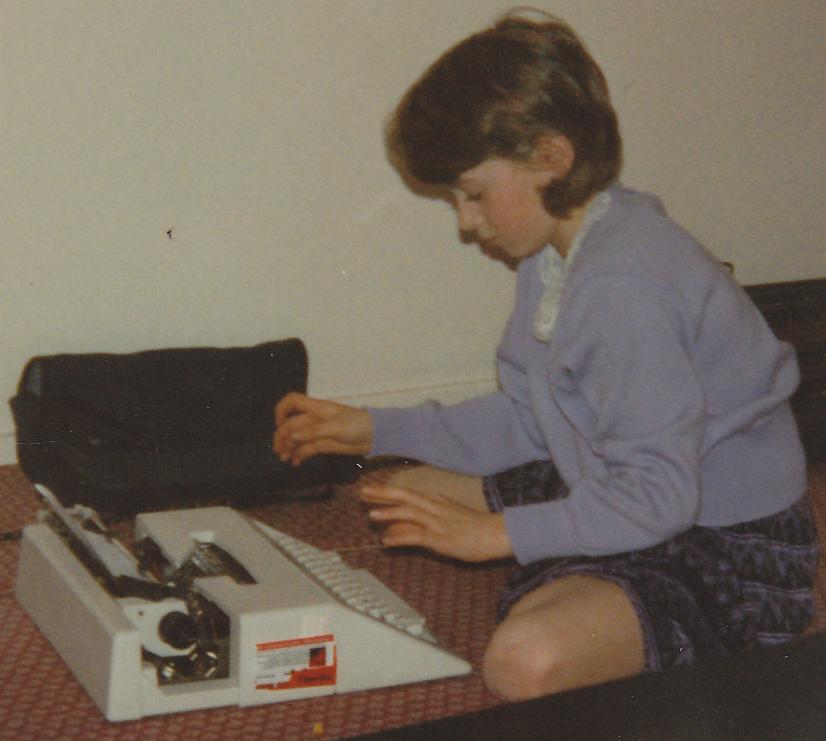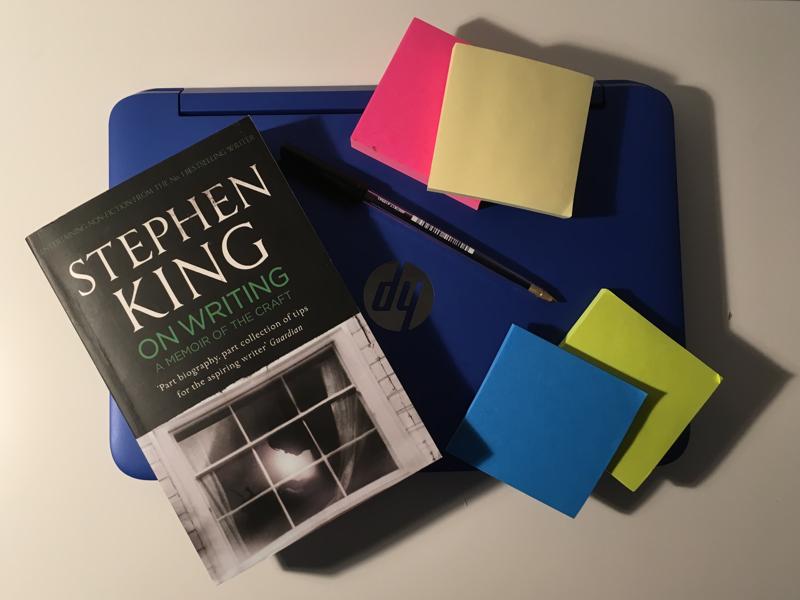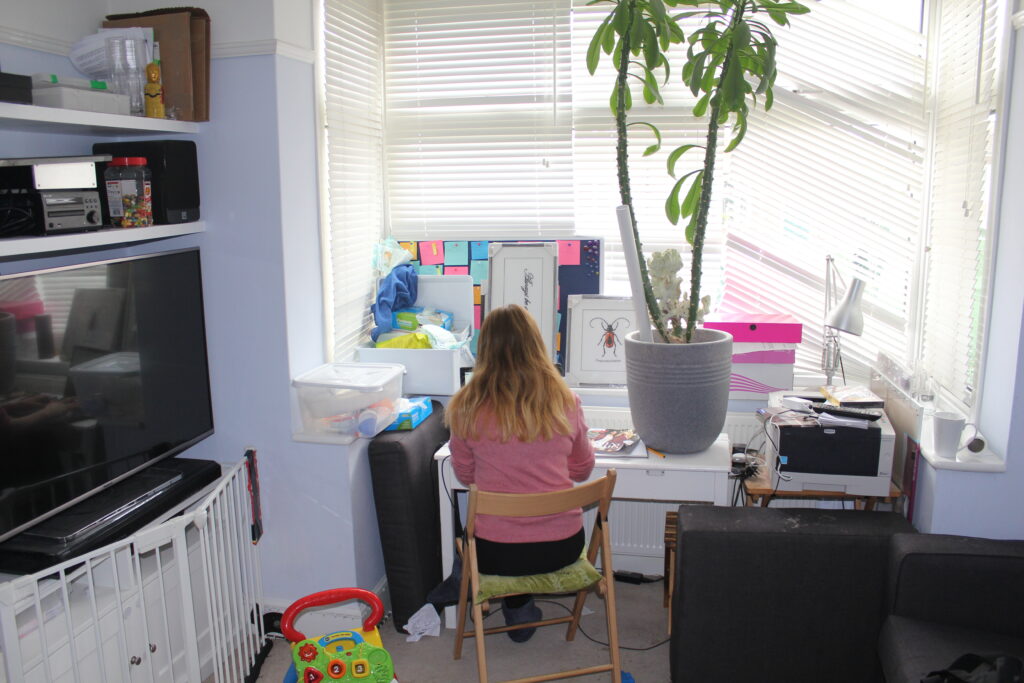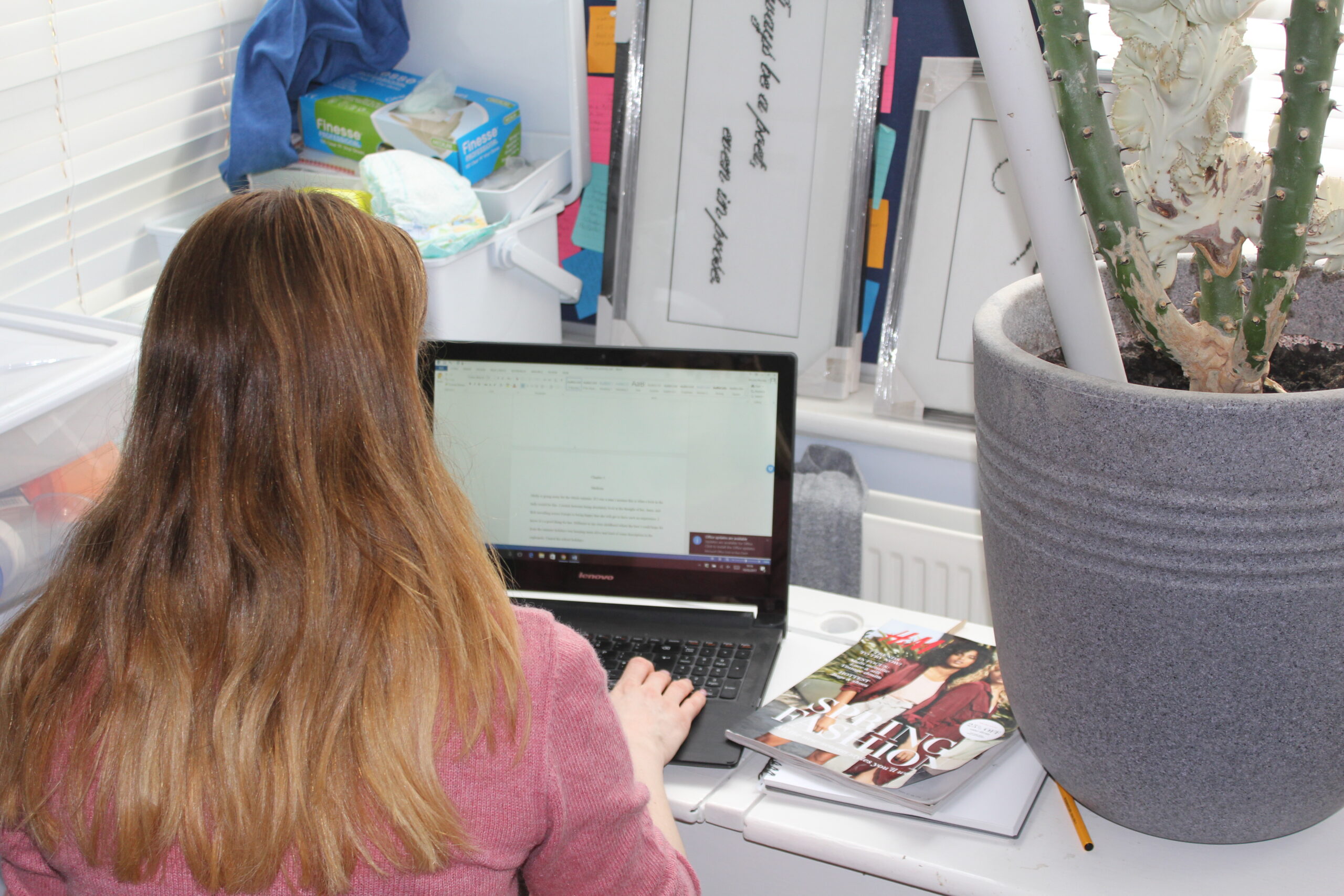How I wrote my first book
I have always read.
A lot. I love stories. As soon as I learned to read, and that words put together were like magical doorways into different worlds, I was off.
Books affected me. Stories impacted me. Fictional characters took firm place in my heart and memory. I often preferred them to real life people, trapped as they were on the printed page. A safe place I could shut, re-visit, take a break from, or imagine a different outcome for.
I have always written
I scrawled my own little books, complete with sketches, from an early age. I stapled them together, numbered the pages, laboured over the covers. For my tenth birthday I got a typewriter. I tapped away.

At school I was a dreamer. I was frustrating for my teachers. I was bright enough, and in the top sets, but I often looked like I was not paying attention, and I wasn’t. Instead I could be found staring out the window. My brain was never where it ought to be – I have literally no recollection of geographical rock formations, German vowels, or how to divide pie (is that even a thing?) – but, the grey matter was actually pretty busy, thinking and thinking. What if this was a person or a thing? Why did so and so do this? What if they hadn’t? What if that had happened instead? Or that? Or this?
It was clear I was never going to focus academically, but I was generously labelled as ‘creative’ instead. I took this seriously and I went to the BRIT school when I was fourteen, the only non-fee paying performing arts in the UK. I saw it on newsround. It said it was Croydon’s answer to Fame. I loved fame. The film, the series. BRIT was a good time, I didn’t have to wear a uniform, we could call teachers by their first names, I was surrounded by really talented actors, singers, dancers. I was not a good actress, but I learned about devising theatre, I wrote plays.
But I was still a dreamer. I left with only two respectable GCSE’s, half a B-tech and no A-levels.
After BRIT, I found myself lost for many reasons. It was an odd time, a time of no fixed abode and a fair amount of fear. I was always on the move, with a rucksack full of books on my back, and army boots on my feet. I was headed down a bad path. I couldn’t verbalise any of it and I wouldn’t have known who to speak to anyway. But, I wrote it all down. In snatches, in various notepads in disjointed sentences and paragraphs. Writing, as always, was a salve.
At 21, I got a place at university despite the odds, and turned things around. I was to study Drama and I wanted to combine it with psychology. The kind lecturer, who gave me a chance when he needn’t have, suggested literature instead. I’m glad he did.
I took a module in Creative Writing. It’s the only thing I got a first in. It was the first time in a class-room, that I wasn’t looking out the window, thinking of something else.
My tutor was a published writer. He loved everything I wrote and suggested sending it out.
I didn’t, I was not a ‘finisher’ at that age, and maybe didn’t have enough life behind me to make full, convincing stories yet anyway.
But, I continued to jot things down; thoughts, page- long stories, random chapters, lyrics, notes to myself scrawled on the back of beermats when I’d drunk too much.
I graduated, travelled a bit, and became a mum at 25. I stayed home with my son for a few years. I still read. I still wrote. I worked part time at my local radio station, scripting the travel news. I got a bursary from the Journalism Diversity Fund to study for an MA in Journalism. I was a single parent by now. I graduated and worked in PR.
I met the man who would become my husband.
We moved to a new town, I became pregnant with my second son. He said maternity leave would be the perfect time to try writing that book I was always saying ‘one day’ about.
Madison Attallee
I entered a writing competition with a shockingly bad, very unfinished, largely unedited piece of plotless frivolity. I had left it too late, but I was determined to make the deadline which was the end of 2014.
As I said, it was a BAD piece of prose. However, I quite liked the woman, Madison Attallee, whom I’d spewed onto the pages. I wrote more of her and, over the space of about four months, I had a folder full of beginnings featuring Madison. And bugger all else.
Seven months pregnant, tearful, with nevermore than 15,000 words, I sobbed to my husband that I just couldn’t do a whole book. He, generally supportive and reasonably mild-mannered, shouted that if I didn’t finish it I’d never know, and added that I was terrible in an office and he’d likely sack me if I worked for him (true story, I was still staring out the window).
Despite the stupidity of any man shouting at their heavily pregnant, terribly hormonal wife, it shifted something. If ever I’ve needed a kick up the arse, I guess it was then. I stayed up that night and re-read Stephen King’s ‘On Writing.’

The next morning, after not really sleeping, I was at my laptop at five am. I sat, and I typed, and I typed, and I typed.
Some days I managed an hour before my son got up in the morning, sometimes that would be 500 words, or maybe even 1000. Some days I would drop him at school come home and carry on. On really, really, good days I’d get down a few thousand words. On even better days, they were whole, complete sentences that made sense.
The new baby came along. I wrote when he napped. I wrote when he was cooing at my feet. I wrote deprived of sleep at two in the morning. Each day, I wrote something. I learned that, for me, the first draft must be non-stop. If I took a day off it was harder to start again. Now I know that I can pause during editing and re-writes but not in the first draft. Not after 20,000 words. Once I hit that mark I’m in.
I Googled a lot of blogs and articles. I learned that writers seem to all have different processes, that there is no right and wrong. Just whatever works for you. Like life. I also learned that I enjoyed it. Immensely. I like making shit up. I like the realm of possibilities. I like thinking about how someone other than me might react. I like not knowing what will happen next, and surprising myself when it seems to come together.
I learned that when I was there, fingers flying over the keyboard, I wasn’t staring out of the window.

I learned that I could finish something. I could finish writing a book, and if I could do it once, maybe I’d be able to do it again.
The shitty first draft
Yeah, it was quite bad. But not utterly awful. The characters were there in a raw form. The plot was pretty hole-y though. I was still reading a lot of blogs by authors. I was spending a lot of time on twitter. I have always been an avid re-reader, and now I was beginning to look at my favourite novels more critically. Why did I like them? What was it about the characters? How did the plot come together? Was there anything I didn’t like? And why?
I read an article in mslexia by a crime writer about getting published being about hard work rather than simple luck. This gave me hope. I emailed her and was stunned when she emailed back. She didn’t plot, which made me feel less panicky about the fact that I just couldn’t seem to. She said the work was in the re-writing. I re-wrote the whole damn book. Then again. Then I sent it to a friend. She liked it.
During one re-write, maybe the third, I realised I was losing track of things, like characters, what happened five chapters ago, what day of the week it was. I bought a massive noticeboard, a load of pins and I made colour-coded post it notes for each chapter. I now do this for every book. I have dabbled in Excel since, but the boards work best for me. I like the visual. I like the way they look when they’re done. I like being able to move the little notes around, re-write or bin them.
This made the next re-write a lot easier, and I felt absolutely gleeful that me, admin-phobic me, had managed such organisation.
I took an online crime writing course. I don’t know that it helped exactly, but it didn’t hurt either, and it made sure I was focussing. Moving towards that goal of the book being complete.
But… when is a book finished? I’m still not entirely sure. Now I go by ‘when my editor says so’. Then, I was feeling it out blind.
I eventually got to the point where it was as good as I could make it on my own. So that’s when I stopped, and I typed the wonderful words ‘The end.’


